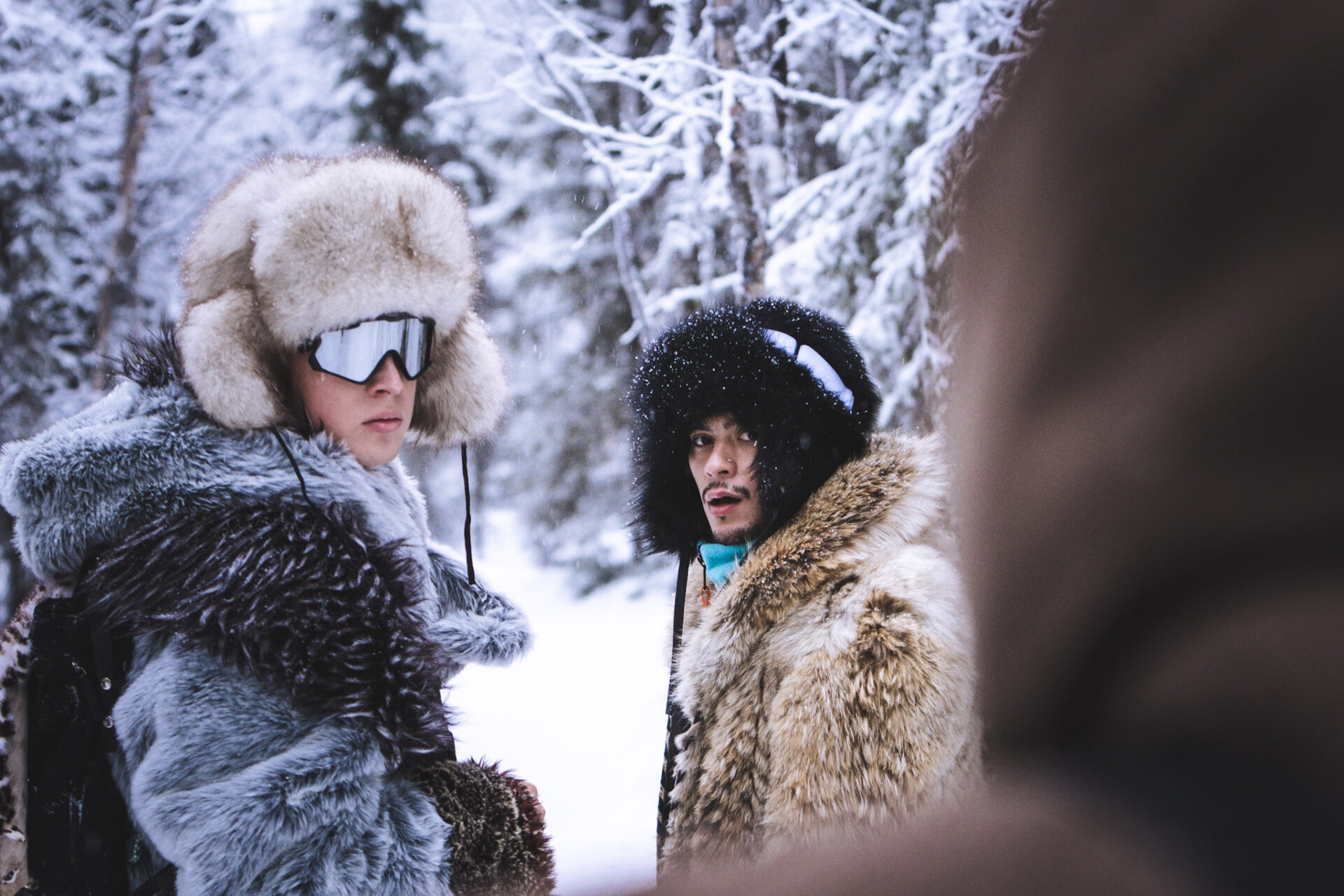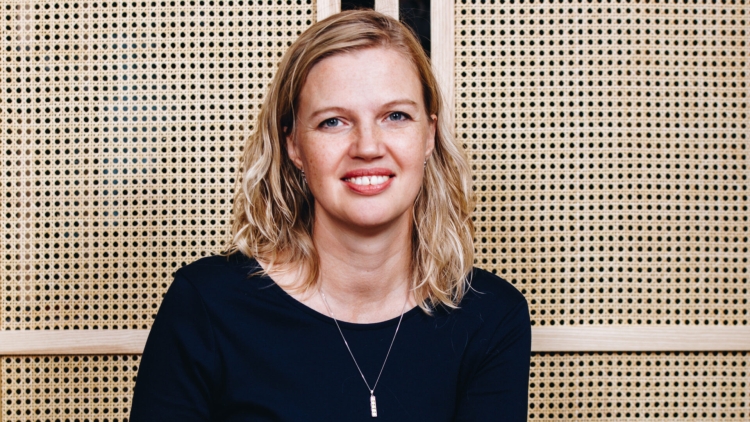Alongside the promotion of holiday shopping sprees, sustainable consumption and the need to manage Christmas-time expenses are addressed more and more every year. Among other things, overconsumption is facilitated by many loan providers and merchants who attract people with what seem to be the best deals ever.
Estonian Youth Climate Delegate Hanah Lahe thinks that a mindset shift is called for. "We shouldn't "reduce overconsumption" but rather make a conscious decision to consume less and be more aware," she says.
What about gifting experiences?
Discussing Christmas and responsible consumption with Ann Runnel, CEO and founder of startup Reverse Resources, she first confesses to having always been perplexed by this problem.
"There is quite a big difference in attitudes across generations as well as social groups," she says. "There are many people who associate consumption with the opportunities they used to miss out on. Shiny new things are also tied to feeling better – I deserve it, I have worked hard for it. And presents are taken to show love and care – I have thought of you, noticed what you like, I see you. Simply saying "don't do it, think of the environment" is not an option."
This makes getting from the environment and showing care to reduced gift-giving a long and tricky mission. "Everyone must think this through for themselves,"she explains. "In that sense, some people are trailblazers, but for some, these concepts must be made graspable and solutions easily accessible before they are willing to change."
Lahe stresses that Christmas is a great time for considering what really matters to us. At the end of the day, is it more important to have many nice things at our homes or many nice people around us?
"Christmas is a holiday for being together and having time off, rather than consuming and mindlessly shopping," she says. "Both children and adults will remember Christmas Eves for the emotions they feel, rather than the gifts they receive. We will remember the smell of gingerbread, the falling snow, going to church and being with family."
Runnel disagrees about the consumer being responsible. She says that merchants and manufacturers bear equal responsibility and that change must be initiated at all levels. "I believe that these changes are easier to make step-by-step, one piece of information or one habit at a time," she explains. "I have proposed to my parents that we make a joint plan for giving children gifts, at most, everyone will get one toy. But there could be other types of additional things, experiences and warm and fuzzy surprises. Theatre tickets, gift cards for nature trips together, joint art workshops, books from second-hand stores or photo albums of great moments together – there are very many options."
Of course, Lahe doesn't want to abolish gifts, she simply thinks they should be practical and well thought through. "A gift doesn't necessarily have to be a surprise – if you know the recipient's wishes early on, it's hard to miss the mark and the gift-giver will also be happy about getting their loved one something useful," she shares. "The best gifts are, of course, experiences and quality time," she adds.

Estonian Youth Climate Delegate Hanah Lahe doesn't think Christmas gifts should be abolished. Instead, they should be practical and well thought through.
(C)Photo: Helen Kattai
Circular economy is becoming increasingly mainstream
Runnel says she is happy about circular economy having become such a popular topic. We have shifted from simply discussing recycling to some people also understanding that the concept entails taking a moment to reflect on every purchase: how long would the item stay with me or my family and what happens with it once we don't use it anymore.
"If you already know that you would only use it once, consider what other options you have to achieve the same goal," she says. "And if you figure that out for yourself, share your thought process with others. There are the moments and ideas that stimulate change," Runnel says, rejoicing over the mindset becoming more popular.
Practice reducing overconsumption
One tip Runnel gives everybody is quite simple. "Choose some household object or things you use dailt that tend to produce the most waste that cannot be recycled or reused," she advises. "Take ten minutes to look into how you could exchange them for an alternative that would create less waste or extend materials' lifecycle," she says, teaching consumers.
If you lack ideas, she recommends visiting the packaging-free store Ilma in Kalamaja, Tallinn, that will surely give you some ideas. You should then test out the new solution. You could also give your loved one a gift that highlights this new-found alternative. "It could be a starter-kit or you could simply draw or write," she suggests. "That way, you gift your loved ones time that they can save by not having to look for or test this solution out, they can trust your experience."
When asked about what responsible consumption really is, Runnel explains that defining the concept would be very technical and scientific. "But to put it very simply, for me, it means that I can meet my own and my family's needs and be happy using less and less materials, things and energy."
A gift bag for years
Finally, Lahe has another good idea to help reduce waste that can create new memories or induce nostalgic reminiscing. Just like a pile of gifts can't put us in a Christmas mood by itself, new ornaments, shiny wrapping papers, garlands and decorations are not an essential part of the holiday. "Everything related to "packaging" Christmas can be used for a couple of years, if not for decades," she explains. "For example, every year I get excited for Christmas because my grandmother has kept old tree ornaments from her childhood for use to decorate our tree."

Rap artists Mikael Gabriel and nublu worry for the future of our planet and collaborated with the Nordic Council of Ministers' Office in Estonia to raise youngsters' awareness through music
(C) Photo: Mihkel Sillaots
Rap artist nublu promotes environmentally friendly decisions in new video
On 31 December last year, nublu published the music video for his single "Vihje" in collaboration with Finnish rap artist Mikael Gabriel. The video was shot in Lapland. The Nordic Council of Ministers' Office in Estonia supported the production of the video to promote sustainable consumption and environmentally-friendly decisions.
The video was shot in beautiful Lapland and its main message is that Christmas has become a commercial holiday that focuses on achieving maximal production and consumption. At the same time, we often fail to recognise the ways our activity can harm the environment or even contribute to using child labour or paying people unliveable wages.
"Lapland was truly a great place for addressing environmental topics. Its barely touched beauty demonstrates that our planet has a perfectly functioning eco-system that shouldn't be taken for granted," nublu said.
In addition to the music video, a behind the scenes mini-documentary was released where nublu, Mikael Gabriel, the director of the music video Marta Vaarik, Santa Claus and the representatives of UNICEFand Tallink discuss how they view sustainable lifestyle and how to consume responsibly.
Click here to watch the new music video Vihje by nublu and Mikael Gabriel.
Click here to watch the behind-the-scenes documentary.
In cooperation with the news portal Geenius, the Norwegian embassy in Estonia and other Nordic embassies in the country, we launched a series of articles in which we shed light on the Nordic economies of the future and cooperation between Estonia and its Nordic neighbours. The articles can be found online at https://ari.geenius.ee/blogi/pohjamaade-tulevikumajanduse-blogi/.

